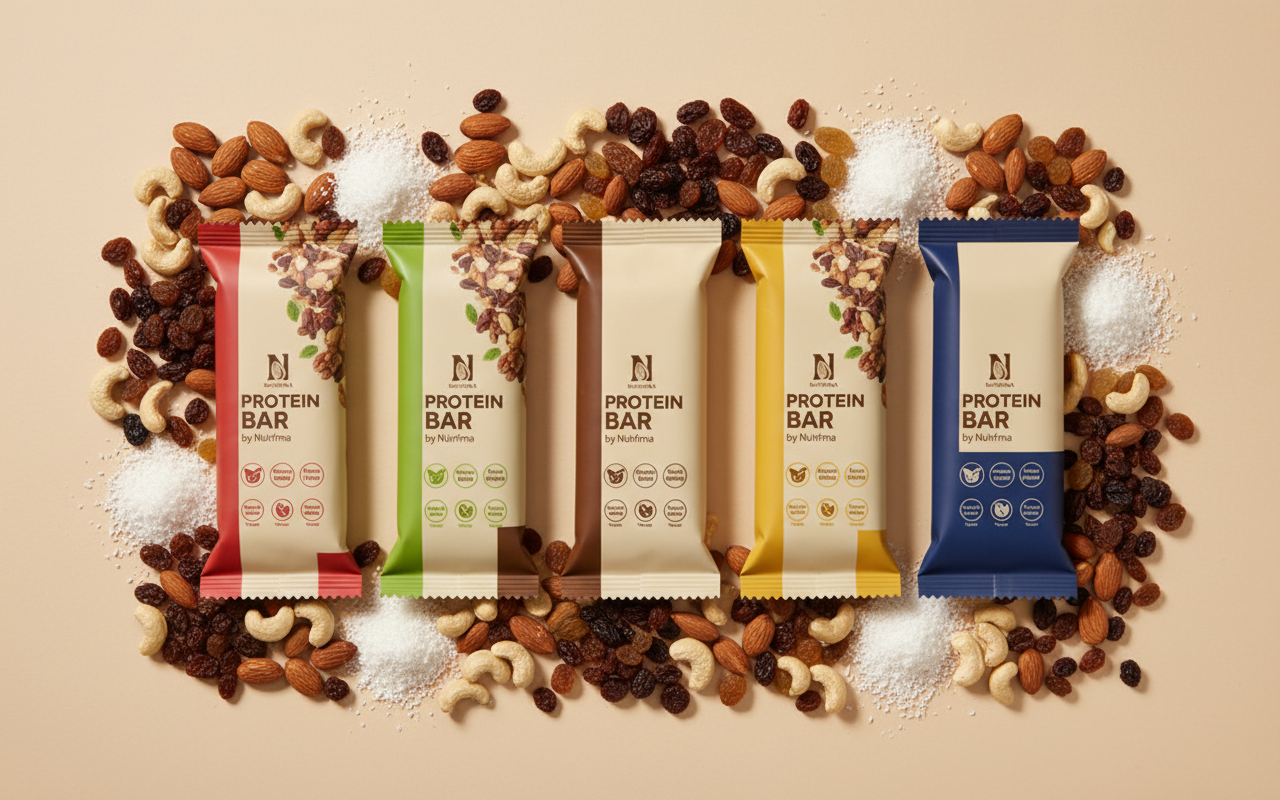In a fast-paced world, healthy snacking has become a buzzword for many Indians, but is it truly worth the extra cost? With the India healthy snacks market valued at USD 3.0 Billion in 2024 and projected to reach USD 4.6 Billion by 2033 at a CAGR of 5.00%, more consumers are choosing nutrient-rich options over traditional munchies. Yet, 73% of Indians prefer reading ingredient lists and nutritional value before buying, often weighing price against benefits. For brands like Nutrima, a Surat-based, mom-made nut butter maker, this means offering affordable, high-protein snacks that deliver real value. Let's break down the costs versus benefits of healthy snacking in India.
What Is the Cost of Healthy Snacking in India?
Healthy snacks like nut butters or protein bars often cost 20-50% more than processed alternatives. For example, a 200g jar of natural almond butter from Nutrima might be ₹400, while a processed version is ₹250. Why the premium? Fresh ingredients like Mamra almonds from Surat markets add ₹1,300/kg, plus handmade production in small batches ensures quality but raises labor costs. In Tier 2 cities like Surat, consumers spend an average ₹500-800/month on snacks, with 63% opting for innovative healthy options despite higher prices.
What Are the Benefits of Healthy Snacking?
The benefits outweigh costs for long-term health. Nutrient-dense snacks provide sustained energy, better focus, and reduced disease risk. A study shows nutritious foods can cost 3 times more than unhealthy ones, but they prevent chronic issues like obesity, saving on medical bills. For instance, Nutrima's 48g protein peanut butter supports muscle recovery, appealing to 72% of Indians seeking functional benefits.
Q&A: Cost vs. Benefit Breakdown
- Is healthy snacking expensive? Yes, but bulk buys (e.g., Nutrima's 200g jars at ₹250) cut costs 20% vs. daily cafe snacks.
- What are the long-term savings? Reduced doctor visits—diabetes costs ₹50,000/year in India; protein-rich snacks like Nutrima help prevent it.
- How does Nutrima make it affordable? Surat-sourced ingredients and mom-made batches keep prices 15% lower than imports.
Conclusion
Healthy snacking is worth the price for better energy and wellness. At Nutrima, our Surat-crafted products deliver premium value without breaking the bank. Shop our nut butters [link] and experience the difference today!
(Word Count: 612)
Natural vs. Processed Snacks: What You Need to Know Before Buying
Introduction
In India, snacks are a staple, but choosing between natural and processed can impact health. With 63% of consumers opting for healthier options, the debate is real. Nutrima, a Surat-based brand, offers natural nut butters from mom-made recipes, but how do they compare to processed ones? Let's explore the differences, backed by science, to help you decide.
What Are Natural Snacks?
Natural snacks, like Nutrima's peanut butter, use whole ingredients (e.g., roasted peanuts, jaggery) with minimal processing. They retain nutrients—high protein, fiber—and avoid additives. A study shows unprocessed foods are perceived healthier than processed ones in India.
What Are Processed Snacks?
Processed snacks (e.g., packaged chips) include high salt, sugar, and preservatives. They’re cheap but linked to obesity—Indian packaged foods rank worst globally for sugar/salt content. Ultra-processed foods (UPFs) make up 30% of urban diets, raising health risks.
Natural vs. Processed: Key Differences
- Nutrition: Natural (e.g., Nutrima's 48g protein/200g) vs. processed (high calories, low fiber). Switching reduces weight gain, per studies.
- Cost: Natural 20-50% pricier but saves on health bills.
- Taste/Convenience: Natural offers fresh flavors (e.g., Surat-sourced jaggery); processed is addictive but unhealthy.
Q&A: What to Know Before Buying
- How to spot natural snacks? Look for FSSAI labels, short ingredient lists (Nutrima has 5-6).
- Are processed snacks harmful? Yes, high sodium/sugar increases diabetes risk (India's 100M cases).
- Why choose Nutrima? Mom-made, 100% natural—better than processed alternatives.
5 Science-Backed Reasons Why Switching to Clean Snacks Improves Energy & Focus:
In India, where 72% prioritize healthy snacking, clean snacks like Nutrima's nut butters offer sustained energy. Science shows switching from processed to natural improves focus—let's explore 5 reasons, with Nutrima's Surat-made products as examples.
Reason 1: Balanced Blood Sugar for Steady Energy
Clean snacks stabilize glucose, preventing crashes. Harvard studies show fiber-rich nuts (e.g., Nutrima's 16g fiber/200g peanut butter) provide lasting energy.
Reason 2: Nutrient Density Boosts Brain Function
Packed with vitamins (e.g., E in almonds), clean snacks enhance cognition. Research from Healthline notes omega-3s improve focus—Nutrima's bars offer this in a desi format.
Reason 3: Reduced Inflammation for Better Concentration
Antioxidants in clean snacks like Nutrima's date-infused bars reduce inflammation, per AHA studies, leading to improved mood and focus.
Reason 4: Gut Health from Fiber Supports Mental Clarity
High-fiber clean snacks promote microbiome health, linked to energy/focus. Northwestern Medicine notes protein-fiber combos (e.g., Nutrima's 10g protein bars) extend alertness.
Reason 5: Mood Enhancement from Whole Foods
Blueberries and nuts boost serotonin, per RealSimple. Nutrima's dark chocolate bars mimic this for sustained focus.
Conclusion
Switch to clean snacks for proven energy and focus gains. Shop Nutrima's Surat-crafted products today!

